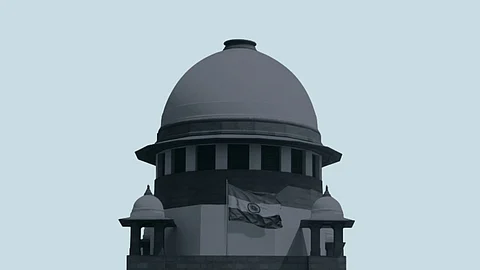

THE SUPREME COURT TODAY agreed to hear an application seeking extension of the six-month deadline for mandatory registration of all Waqf properties, including Waqf-by-user lands, on the Union Ministry of Minority Affairs’ UMEED portal - Unified Waqf Management, Empowerment, Efficiency, and Development, a portal launched in June 2025 to manage and monitor Waqf properties across the country.
A Bench headed by Chief Justice B.R. Gavai said it would list the matter for hearing after advocate Nizam Pasha, appearing for AIMIM chief and Lok Sabha member Asaduddin Owaisi, sought more time for completing the registration process, noting that most of the six-month period had already lapsed following the court’s earlier interim order on the Waqf (Amendment) Act, 2025.
“Let it be listed; listing does not mean granting,” observed the CJI. Pasha submitted that five of the six months were consumed during the pendency of the judgment, leaving only a month for registration.
Under the government’s mandate, details of all registered Waqf properties nationwide must be uploaded on the UMEED portal within six months of the amended law’s commencement. The application seeks an extension citing the scale and complexity of the exercise involving thousands of properties.
The fresh plea comes against the backdrop of the Supreme Court’s September 15 interim order, which refused to stay the Waqf (Amendment) Act, 2025, in its entirety but suspended some contentious provisions until the constitutional validity of the law is finally decided. The Bench of CJI Gavai and Justice Augustine George Masih stayed the clause requiring that only those “practising Islam for at least five years” could create a Waqf, calling it prima facie arbitrary in the absence of a mechanism for verification.
The Court had also halted the operation of provisions empowering a designated revenue officer above the rank of Collector to determine whether a disputed property was government land or Waqf property—holding that such powers breached the principle of separation of powers. It ruled that all ownership disputes would continue to be adjudicated by Waqf Tribunals under Section 83 of the Act and that no Waqf could be dispossessed nor any third-party rights created until proceedings attain finality.
However, the Court refused to interfere with provisions allowing limited representation of non-Muslim members in Waqf Boards and the Central Waqf Council. It directed that, “as far as possible,” the Chief Executive Officer of a Waqf Board should be chosen from the Muslim community. The interim order also noted that registration of Waqf properties had been a consistent feature across earlier Waqf laws dating back to 1923 and could not, by itself, be considered arbitrary.
The challenge to the amended law was brought by several petitioners, including Asaduddin Owaisi, Congress MP Mohammad Jawed, Maulana Arshad Madani, AIMPLB, and SDPI, who have argued that the 2025 amendments amounted to state interference in Muslim religious affairs. Six BJP-ruled states—Haryana, Maharashtra, Madhya Pradesh, Rajasthan, Chhattisgarh, and Assam—have sought to intervene in support of the law, claiming it curbs large-scale encroachments on public land wrongfully claimed as Waqf.